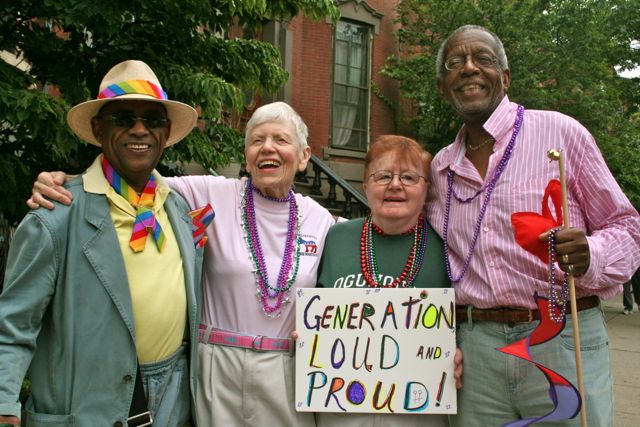The U.S. Department of Health and Human Services (HHS) has eliminated questions about lesbian, gay, bisexual, and transgender (LGBT) people from two surveys that provide HHS with data regarding the effectiveness and equity of critical safety net programs. Voluntary data collection on LGBT people, in this case elders and those who are living with disabilities, who receive services through certain federal programs is essential to ensuring that the needs of LGBT Americans are being met.
The National Survey of Older Americans Act Participants is an annual survey of those who receive services under the Older Americans Act (OAA). The OAA delivers social support and nutrition programs to older adults, including home delivered meals, congregate meals, transportation, caregiver support, and senior centers. In 2014, the National Survey of OAA participants began collecting data on the sexual orientation and gender identity (SOGI) of program recipients. HHS’s proposed 2017 protocol eliminates the survey’s question about sexual orientation and gender identity.
The Annual Program Performance Report for Centers for Independent Living allows HHS to evaluate the effectiveness and equity of programs that serve Americans with disabilities. A version of the report released in January 2017 included SOGI questions. However, a revised version released in March 2017 eliminated these questions. LGBT older adults already face significant barriers to accessing critical elder and disability services, and a lack of data will only create more obstacles.
The collection of data on LGBT program recipients is critical to ensuring that programs meet the needs of LGBT seniors, who experience high rates of economic insecurity, social isolation, and discrimination. HHS is rolling back essential tools that it requires to effectively and equitably reach all elders. It is also ignoring the consensus among health and elder service professionals that SOGI data should be collected in these settings. The Joint Commission, The Institute of Medicine, and other regulatory bodies and government agencies have called for routine SOGI data collection.
Please submit your comment to HHS about the importance of retaining SOGI survey questions by May 12, 2017. You may submit written or electronic comments to [email protected]. Submit written comments to:
Heather Menne
U.S. Department of Health and Human Services: Administration for Community Living
Washington, DC 20201
Please tell HHS to:
- Restore SOGI questions to the National Survey of Older Americans Act Participants and the Annual Program Performance Report for the Centers for Independent Living.
- Continue efforts to make elder services and disability services more culturally competent to serve LGBT people.
- Analyze and publish the results of these surveys on a regular basis.
You may also comment on the Centers for Independent Living program report by April 7, 2017.
For more information, please see this report from the Center for American Progress (CAP) and Services & Advocacy for LGBT Elders (SAGE).


